Introduction
The purpose of this paper is to explore different aspects of African American and Hispanic cultures and to find out basic differences and similarities between them. African Americans and Hispanics are two major minority groups in New Jersey. They have their own unique cultures characterized by beliefs, values, cuisines, language, religion, and holidays. The paper will address these aspects of African American and Hispanic cultures and contrast some of these aspects to show their peculiarities and uniqueness.
African-American Culture
African Americans are descendants of black Africans who live in the western hemisphere. Their immigration to Americas began at the end of the 15h century; these days, they form major ethnic minority in the United States. (“African Americans’ Beginnings,” 2007) In fact, “African-American history starts in the 1500s with the first Africans coming from Mexico and the Caribbean to the Spanish territories of Florida, Texas, and other parts of the South.” (“The African-American Migration Experience,” 2008) They constitute 10% of New Jersey population (around 1 million people). African American community speaks African American English which can be characterized “by an expansive set of morphological, syntactic, semantic, phonological, and discourse features that differ systematically from the ways that the same meanings would be expressed in Standard American English.” (Neuman & Dickenson, 2006)
A number of religions are practiced within the community, though Protestant Christianity prevails. Scholars keep to an idea that American experience introduced Africans to Protestant Christianity, which let to certain transformations in African American religion and “provided a vehicle via which a distinctly Black American religious orientation could be expressed.” (Bukhari, Nyang, & Ahmad, 2004) Other religions practiced are Christianity, Islam, Judaism, Buddhism, and others. At large, African Americans are devout; they have a number of religious and spiritual traditions and believe that religion contributes “to the improved trend of their emotional/spiritual well-being.” (McLoyd, Hill, & Dodge, 2005)
Slavery, inequality, and past discrimination influenced the structure of modern African American families. The West American family is often regarded as “a predecessor or model for the extended family structures found in contemporary African-American communities.” (“African American Families,” 2009) Modern African American families strive to sustain family identity with women being less likely to remarry. Together with traditional American holidays, African Americans observe their ethnic holidays. Among their national holidays are the birthday of Martin Luther King, Jr which is a federal holiday observed since 1986 (U.S. Census Bureau, 2005), the birthdays of Abraham Lincoln, Frederick Douglass, as well as Black History Month, Emancipation Day, Kwanzaa, and a number of other holidays. African Americans also have their own cuisine; their traditional food includes fried chicken, cornbread, hoppin’ John, macaroni and cheese, collard greens, candied yams, and other dishes which traditional soul food dinner includes (figure 1).
Hispanic Culture
Latino Americans and Hispanics originate from Spain and Latin America. Most of them move to the United States in search of better life. These days, “the term “Hispanic” is often used to refer collectively to all Spanish-speakers.” (“ICHA History,” 2007) Currently, Hispanics constitute 16% of New Jersey population with the United States being the 5th largest nation in the world which speaks Spanish. (“Hispanic Americans,” 2004) Most of Hispanics living in New Jersey speak English at least to some extent; those who were born there are bilingual. Family values are of biggest importance for the Hispanic people: “Traditionally, the Hispanic family is a close-kit group and the most important social unit … Individuals within a family have a moral responsibility to aid other members of the family experiencing financial problems, unemployment, poor health conditions.” (Brauer, 2006) Social values are also of great significance for Hispanics: “Valued behaviors include cooperation towards goal achievement, establishing positive interpersonal relationship, and concern for others. Cooperating with peers in working together to complete tasks is valued for the sense of camaraderie and a non-competitive approach in business.” (Torres, 1999) Hispanics have their unique cuisine with most popular foodstuffs being rice and vegetables.
Most of Hispanic people are Catholics, which accounts for a number of religious celebrations which can be observed within this nation. Main religious celebrations are Semana Santa (Holy Week), La Navidad (Christmas), Los Tres Reyes Magos (Three Kings’ Day) (figure 2), Cuaresma, and others. The cross, the rosary, the image of the Virgin Mary, and images of saints are the main religious symbols of Hispanic religion. Each Latin American country has a patron to who people pray. Certain towns and regions also have separate Patron Saints, and many Hispanic countries celebrate patrons’ festivities (Las Fiestas Patronales) (figure 3). Among the biggest Hispanic holidays are the Independence Day, the National Day, the Liberation Day, the Revolution Day, Calle Ocho Festival (figure 4) and the Day of the Dead (it is celebrated in Mexico). In Puerto Rico there are a number of holidays and festivals which are observed annually to show the happy spirit of Boricuas.
Discussion and Conclusions Section
Similarities between African American and Hispanic Cultures
One of the greatest similarities between the cultures of these two nations is their desire to preserve and sustain their cultural values. This, in the first place, is expressed through their family relations. For instance, African Americans “actively seek to preserve African cultural values by incorporating African cultural traditions into African American family life, through using African names, the wearing of African dress, and the display of African art, literature, music, and drama.” (McLoyd et al, 2005) Kwanzaa is one of the biggest national holidays aimed at preserving African American’s cultural identity. The essence of the holiday consists in celebrating African American culture and history. From December, 26 to January, 1 African Americans “honor their heritage with food, music, and dancing … Each night of Kwanzaa, people talk about ways to make their lives better.” (Doering & Tourville, 2006) Hispanics, in their turn, preserve their culture through their language: “The attachment to their language provides them with cultural identity, and their pride in it leads Hispanics to preserve it, no matter how many generations of their family have lived in the U.S.” (Valle & Mandel, 2003)
Another similarity is their devotion to religion. This primarily consists in poetry, music, and religious holidays. African American music abounds with religious songs which are often sung in churches (figure 5); religion is an integral part of this nation’s life with children being taught the basics of it by family members (figure 6). Hispanic people express their devotion to religion through numerous religious holidays and festivals. Three Kings’ Days is widely celebrated in Hispanic countries, as well as Las Fiestas Patronales, Calle Ocho festival , and Epiphany Festival of the Twelfth Night (figure 7).
Differences between African American and Hispanic Cultures
The main differences lie in the nation’s cuisine, language, and fighting with inequality and discrimination. Differences between cuisine and language of two cultures lie in their penetration into the Native American society and their uniqueness. African American cuisine could have been unique if it did not assimilate with the American traditional food. Hispanic, mostly Mexican and Latino-American cuisine, remained unique. Only natives succeed in cooking traditional food and their recipes are carefully passed from generation to generation. The same is true about the languages. African American language is now regarded as a dialect of Standard English. African American language is informal and is not used in writing. Spanish, on the contrary, is learned even by Native Americans and is considered to be one of the most important languages in the world.
Moreover, African Americans seem to be more persistent in fighting for their rights and equality. Though the world has seen several Rights’ Movements organized by Hispanics, the events which took place during the Civil Rights’ Movement and later, are more memorable. Perhaps, this is connected with the fact that Hispanics were less oppressed in the past and were not subjected to slavery.
Ways for This Information to Be Applied in the Classroom
The first way is to expand the used information and to organize it in lectures which would give a better idea about African American and Hispanic history. Secondly, video recordings with Hispanic religious holidays may be offered to the class for the students to better perceive Hispanic culture. Finally, African American religious songs may be listened to and analyzed, which would help to understand the importance of religion to African American people.
Materials and Methods Employed
Search engines were used to find Internet sources related to the topic. Books in the library were carefully looked through and the most relevant ones were selected. The information was evaluated and used in the research paper. The information in the Internet was accessed by using the main key words, for instance, “African American culture” and “Hispanic culture,” as well as more specific ones, such as “African American holidays, food, religion,” “Hispanic festivals and family tradition,” etc.
Books used in the paper are the most important and valuable sources. They are reliable and do not contain any biased information. Books are the most important sources used in this paper because they describe research on the cultures discuss, unlike internet sources which are just descriptive. Internet sites presenting information about African American and Hispanic culture were also quite useful.
Review and synthesis of information took the biggest amount of time. Both the cultures analyzed are rich in traditions and have a number of peculiarities. The brightest and the most memorable aspects of the cultures were chosen and described. I used note cards to write down the important features of the cultures analyzed; then I highlighted the most important information and organized it in a more coherent way.
This report is important to me personally because it enriched my knowledge about African American and Hispanic cultures. It is important to me as to a teaching professional because I am going to need the information I used in this paper in future. Cultural aspects of these nations will help me to better understand their history and, correspondingly, to teach it to others.
Images
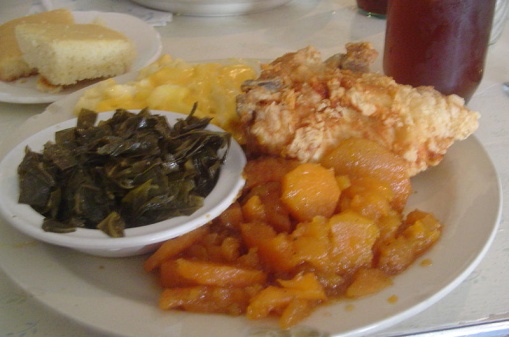
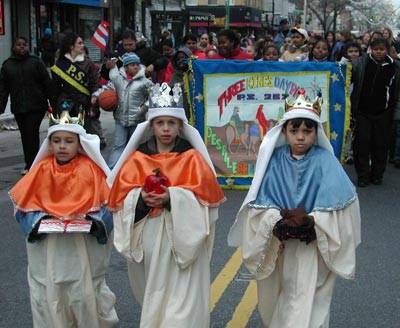
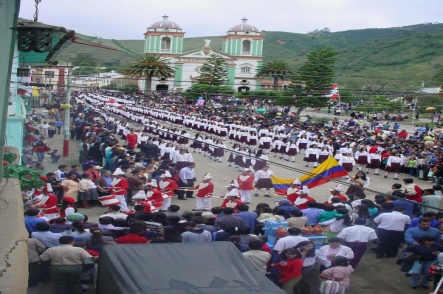
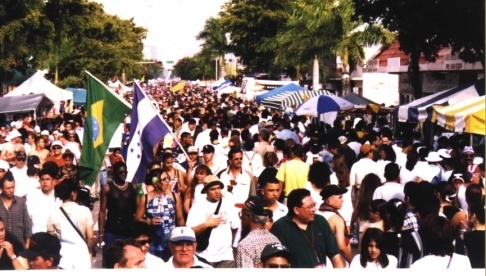
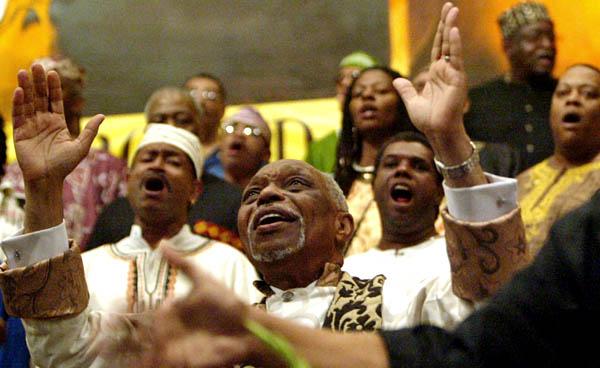
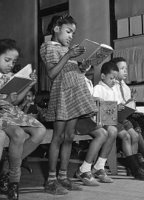
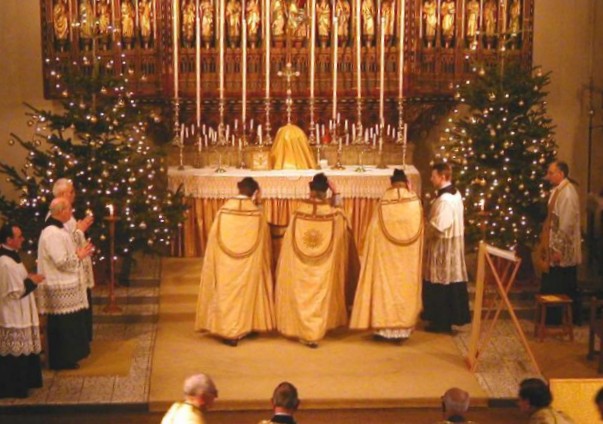
Reference List
African Americans’ Beginnings. (2007). Web.
African American Families. (2009) Web.
The African-American Migration Experience. (2008). Web.
Facts for Features. (2005). Web.
ICHA History. (2007). Web.
Hispanic Americans – A Diverse People. (2004). Web.
Brauer, Ralph. (2006). The Strange death of Liberal America. Arbee.
Bukhari, Z.H., Nyang, S.S., & Ahmad, M. (2004). Muslims’ Place in the American Public Square: Hope, Fears, and Aspirations. Rowman Altamira.
Doering, A. & Tourville, A.D. (2006). Kwanzaa: African American Celebration of Culture. Capstone Press.
McLoyd, V.V., Hill, N.E., & Dodge, K.A. (2005). African American Family Life: Ecological and Cultural Diversity. Guilford Press.
Neuman, S.B. & Dickinson, D.K. (2006). Handbook of Early Literacy Research. Guilford Press.
Torres, S. (1999). Hispanic Voices: Hispanic Health Educators Speak Out. Jones & Bartlett Publishers.
Valle, F.J. & Judy M. M. (2003). How to Win the Hispanic Gold Rush: Critical Cultural, Demographic, Marketing, and Motivational Factors. iUniverse.
Figure 1: African American traditional soul food dinner. Web.
Figure 2: Three Kings’ Day. Web.
Figure 3: Fiestas Patronales. Web.
Figure 4: Calle Ocho. Web.
Figure 5: African American religious singing. Web.
Figure 6: African American children studying religion.
Figure 7: Epiphany Festival. Web.